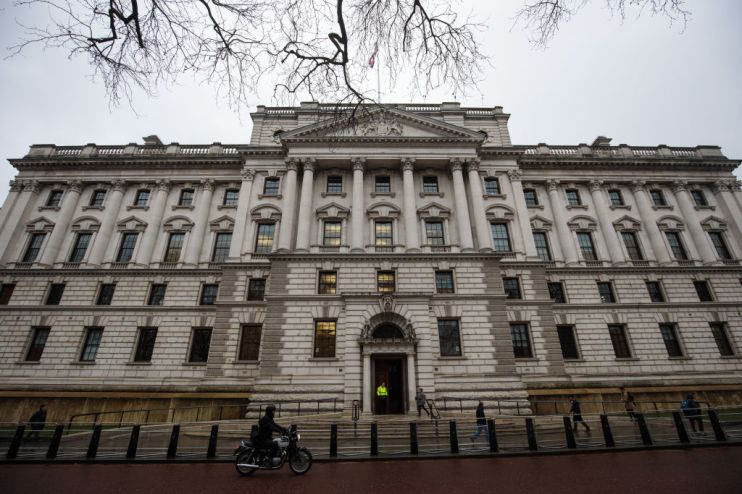Budget: UK on track for upside scenario with net debt falling, says J.P. Morgan AM chief strategist

As Rishi Sunak is getting ready to present this year’s Budget, there are two central questions the Chancellor will likely have been asking himself in the run up to today, according to Karen Ward, chief market strategist EMEA at J.P. Morgan Asset Management.
“How much further support will the economy need prior to restrictions being eased? And when and how should he begin the process of fiscal consolidation?”
Ward told City A.M. this morning that, with regards to additional support, she expected the Chancellor to be “generous” with extensions to the furlough scheme, grants for the leisure and hospitality industry, and an extension to the stamp duty holiday.
Indeed, the government did confirm that the furlough scheme will be extended until September in today’s Budget, ensuring the government will pay millions of people’s wages past when Covid restrictions are set to end.
The chancellor said late last night it was “only right” that the government continued to help businesses and pay workers’ wages as the UK looks to lift all Covid restrictions permanently over the next four months.
“Fiscal measures over the past year have acted like a bridge from one side of the Covid-19 crisis to the other. But bridges do not work if they only take you three quarters of the way across the ravine,” Ward said.
She stressed the Chancellor should continue to err on the side of an extension “that is too long, rather than one that is too short.”
Read more: Visit our dedicated hub for more coverage of this year’s Budget
Balancing the books
“On the subject of consolidation, the Chancellor is likely to provide some kind of roadmap to demonstrate that balancing the books will be a priority once the crisis is over,” Ward continued.
Raising corporate tax is one option, she said, explaining that this would partly reverse the nine percentage points of cuts delivered since 2010, and still leave the UK with relatively low corporation tax by international standards.
“But it is too early for detailed, significant tightening measures to reduce the deficit. We simply have very little visibility at this stage on the size of the problem at hand,” Ward said.
If the recovery in the second half of this year is “very strong,” tax receipts will rise, potentially negating much of the need for tax hikes.
Ward recalled that, when the Office for Budget Responsibility set out its last set of forecasts back in November, they presented three economic scenarios.
“I believe we are on track for the upside scenario which, even without further tightening measures, has net debt falling meaningfully over the forecast horizon,” she added.
“For now, the emphasis should be on building confidence so that – when they are allowed – households and businesses can spend away,” Ward concluded.